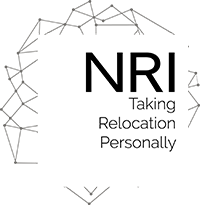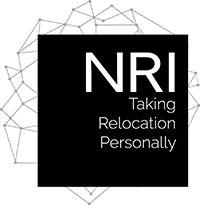The Winter Olympics are the most prestigious competition for winter sports, and its events often remind us how fortunes can change in a fraction of a second. But for business leaders, the Winter Olympics contain some of the most valuable lessons that have nothing to do with cold or ice.
In fact, these high-profile events are a fantastic demonstration of the values of teamwork, self-discipline, and persistence. Leaders, managers, and employees can utilize the skills of Olympic athletes to produce peak performance at work and at home.
Training for the Olympics is all about seeing and embracing a far-off goal. It’s about understanding how individual effort fits into long-term success and developing models and plans to create sustainable success of both the individual and the team.
So, what can a manager learn from the Olympic coaching model?
1. Set strategic goals
Whether it’s a revenue goal, an annual quota, an increase in sales growth, or a percentage of market share, your goal must be clear and it must be simple. Your entire staff – at all levels – should know and understand what the goal is.
To help clarify the goal, make sure your staff knows what results they have to beat. Just like an athlete keeps track of their results and seeks to keep getting stronger, faster, higher, your staff needs to know how good they have been – and how much better they can be.
2. Develop a solid performance plan
Winning Olympic athletic coaches know that developing a solid performance plan for their athletes is one of the basic building blocks for success.
The best performance plans are developed with collaboration between coaches and athletes. While training is important a good plan will also include phases to help athletes improve their ability to train, learn how to compete, how to deliver at peak, and how to recover.
In business terms, these phases can be viewed as helping an employee learn how to plan (ideas, proposals), learn how to perform (benchmarks, projects), how to deliver under pressure (deadlines, presentations) and recover (debriefing, team outing, professional development).
Work plans, like athletic training plans, can be adapted to business cycles to ensure optimal success from project to project and over the company’s growth and development.
3. Model a commitment to daily excellence
Successful coaches quickly learn that athletes look to them for inspiration, and company employees are no different. Employees will have little respect for a manager or CEO who doesn’t demonstrate a solid work ethic and a commitment to daily excellence.
Employees are also very good at sensing whether their leaders truly believe in them and in their potential, and whether those leaders are genuinely committed to growth and development both in themselves, and in those they lead.
So, when you ask employees to raise the bar, remember that the bar starts with you.
4. Work as a team
Individual effort is important but no team has ever won as the sole result of one individual’s effort. Olympic-level teams address team building and team cohesion consciously, tactfully, early, and often. Working as a team towards the small, daily wins develops the kind of trust that will build and sustain efforts when the team must work under pressure and a lot is on the line.
Recruit the right talent to complement the strengths of the team and invest in training people to maximize the skills and culture of your team. And take the time to get to know your team members so that you can assign roles and responsibilities most effectively for success and foster the best performance of each individual.
5. Why the Olympics?
Athletic competitions take place all the time, even ones like speed skating, ice hockey, or figure skating that are traditionally associated with the Winter Olympics. But these competitions are usually stand-alone events and, for athletes with a vision, the long-term goal is to compete in the biggest arena in the world: the Olympics.
Some businesses operate like a constant series of shorter events, with no long-term goal in mind. But that approach often leads to directionless movement and a lack of focus on a bigger goal. And a constant schedule of expending lots of energy with no clear direction leaves employees burned out and ultimately unmotivated.
The Olympics are a fantastic time to reset the thinking in our offices and to learn that, when we utilize the methods and principles of champions, we always do better.
So make the message to your employees clear: you’re building a team for the long haul. Whether it’s through a company newsletter, a conversation, information you give to managers to disseminate through emails or meetings, make sure your employees know you’re looking for them to do their jobs to the best of their ability, whether or not they get that gold medal.

